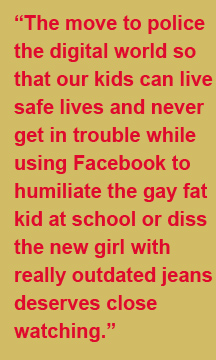Policing Booze And Beer (And Wine) Online
 There appears to be a nascent move among public health advocates and government consumer protection agencies to much more carefully monitor how alcohol is advertised and marketed in the digital world. The Sunday Baltimore Sun Article, "Review Shows Alcohol Companies Reach Youth Online", demonstrates that alcohol companies may soon be targeted in an effort to diminish the capacity of alcohol to market its products, particularly in the social media world in order to reduce minors' exposure to such efforts.
There appears to be a nascent move among public health advocates and government consumer protection agencies to much more carefully monitor how alcohol is advertised and marketed in the digital world. The Sunday Baltimore Sun Article, "Review Shows Alcohol Companies Reach Youth Online", demonstrates that alcohol companies may soon be targeted in an effort to diminish the capacity of alcohol to market its products, particularly in the social media world in order to reduce minors' exposure to such efforts.
What I'm wondering is the extent to which wine and wine marketing efforts could be sweapt up in any efforts the Federal Trade Commisson and others might propose to fully protect that most vulnerable group in the world: "Youth".
The Sun article notes that the FTC "is collecting comments for another study on the market size and reach [of the alcohol industry online]. Officials plan to issue recommendations aimed at protecting youth as well as privacy, likely in 2013. 'We'll figure out if there should be a better self-regulatory approach, which is the primary way we address marketing to minors," she said. "We really use the bully pulpit on industry.' "
Industry self-monitoring of its marketing efforts has always been at the heart of efforts to control how youth  experience alcohol-related marketing. The beer, wine and spirits industry have all adopted codes that support the notion of only using advertising and communication mediums and venues that have a small percentage of youth as an audience. This, by most accounts, has worked out well for all.
experience alcohol-related marketing. The beer, wine and spirits industry have all adopted codes that support the notion of only using advertising and communication mediums and venues that have a small percentage of youth as an audience. This, by most accounts, has worked out well for all.
However, others think the FTC needs to go further in monitoring how alcohol companies work their marketing magic. Again, according to the Baltimore Sun article:
"The Center on Digital Democracy, which monitors on-line marketing and privacy issues, said the FTC could be doing more. Among other things, the group says the agency should investigate alcohol companies' use of techniques that influence subconscious responses. It should also investigate the adequacy of age verification mechanisms and insist a higher percentage of an online advertiser's audience be an adult."
"Influence subconscious response".
Trying to pin point ways to reduce the way communication can "Influence subconscious response" sounds a little intrusive and wide ranging to me.
That said, as in all efforts to control the impact of Alcohol on youth, I wonder what the odds are that the wine industry won't be swept up in any efforts that are largely aimed at controlling what spirits and beer marketers do on-line. It is a fact that wine is simply not the beverage of choice of underage adults. It never has been and likely won't be until it is put in colorful cans, pounds of sugar are added to it, grain alcohol is added to it to pump up the potency and some Rapper du Jour is seen swigging it at the MTV Movie Awards after party. In other words, don't hold your breath.
That said, if you are wondering, there is no possibility that any new directives from he FTC or any other official body that aims to quell alcohol marketing won't effect wine marketers just as much as it effects beer and spirits, the choice of America's youth.
The move to police the digital world so that our kids can live safe lives and never get in trouble while using Facebook to humiliate the gay, fat kid at school or diss the new girl with really outdated jeans deserves close watching. If ever there was an area where government mandate might become truly intrusive and quell speech rights, it's the area of regulating on-line marketing.

Am I the only one who thinks this set up stinks?:
http://www.washingtonpost.com/blogs/ezra-klein/post/the-economics-of-curbing-alcohol-consumption/2012/01/06/gIQAv55ifP_blog.html
What an unfair way to penalize those who already are less likely to binge drink: wine drinkers and connoisseurs of fine spirits….
Arthur,
I assure you that you are not the only one who sees the potential for profound unfair penalizing.
“Review shows alcohol companies reach youth on television” Shocking! So… are we then saying that Budweiser will no longer be allowed to advertise during sports events? I strongly suspect that TV commercials are still by far the #1 way that under-21s are exposed to alcohol marketing. But seeing the same thing on the internet is somehow worse?
Also, asking someone their age before being admitted to a web site is just silly. It doesn’t stop anyone. 1/1/1900 gets you in.
What you will find on any decent winery web site is information about wine, about wine and food, and about what we do. I don’t see anything harmful or inappropriate for under-21 readers, and in fact I would submit that an under-21 person who is informed about the positive and responsible aspects of alcohol use is less likely to abuse it. I see age gates on web sites as harmful, because they restrict such positive information, and put the under-21 person who is interested in this knowledge in the position of having to lie to get it.
Put another way, if under-21s are to be restricted from my web site, then by logical extension all books and magazines about wine should be segregated into an adults-only section in bookstores. Wine Spectator, in a plain brown wrapper.
Hi, I found this blog once, then lost it. Took me forever to come back and find it. I wanted to see what comments you got. Nice blog by the way.I must take this opportunity to write to you from my heart.I Really enjoyed your blog.I have never read such a wonderful article.